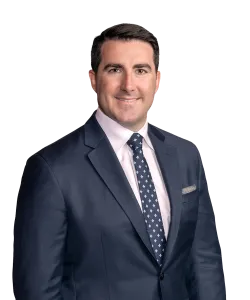Two Charged in Alleged $227 Million COVID-19 Test Kit Fraud
Headlines that Matter for Companies and Executives in Regulated Industries
Two Charged in Alleged $227 Million COVID-19 Test Kit Fraud
Syed Murtuza Kablazada and Mehdi Hussain, the owners and operators of medical laboratories in Illinois, were charged with submitting more than $227 million in fraudulent claims to Medicare.
According to the government, Kablazada and Hussain submitted fraudulent claims to Medicare for reimbursement of COVID-19 test kits for Medicare beneficiaries. As part of the scheme, the defendants allegedly installed foreign nationals to act as nominee owners of the laboratories to submit the false claims. The nationals would then allegedly flee the United States upon learning that the laboratory was under investigation. According to the indictment, the test kits rarely went to the Medicare beneficiaries and some of the individuals who had allegedly requested the test kits were already deceased. Kablazada and Hussain also paid a marketing company to give them the names of hundreds of thousands of Medicare beneficiaries so that they could submit the claims. The government charged both Kablazada and Hussain with four counts of health care fraud, which carry a maximum penalty of 10 years on each of the four counts.
Read the US Department of Justice’s (DOJ) press release here.
Texas Doctor Sentenced to 10 Years for Part in $118 Million Health Care Fraud
Jorge Zamora-Quezada, a Texas rheumatologist, was sentenced to 10 years in prison and three years of supervised release for perpetrating a health care fraud scheme, which included the submission of over $118 million in false claims and the payment of over $28 million by insurers. According to the government, Zamora-Quezada falsely diagnosed patients with rheumatoid arthritis to bill for tests and treatments that the patients did not need, falsified patient records to support the false diagnoses, administered unnecessary treatments, and ordered unnecessary testing, including injections, infusions, x-rays, and MRIs.
The government presented evidence at trial that the false diagnoses made Zamora-Quezada’s patients believe they had a life-long incurable condition that required regular treatment at his offices. The defendant’s false diagnoses and the medications he ordered caused debilitating side effects for the patients, including strokes, necrosis of the jawbone, hair loss, liver damage, and pain. A jury convicted Zamora-Quezada of one count of conspiracy to commit health care fraud, seven counts of health care fraud, and one count of conspiracy to obstruct justice. In addition to his 10-year prison term, Zamora-Quezada was ordered to forfeit $28,245,454, including 13 real estate properties, a jet, and a Maserati GranTurismo.
Read the DOJ’s press release here.
Federal Court Overturns Conviction for Trader’s Alleged Involvement in $100 Million Mango Markets Fraud
On May 23, US District Judge Arun Subramanian of the Southern District of New York vacated a conviction against Avraham Eisenberg for his alleged involvement in defrauding Mango Markets, manipulating the exchange, and stealing over $100 million of cryptocurrency.
Mango Markets is an exchange platform where investors can purchase and borrow cryptocurrencies and crypto-related financial products. The platform also has its own crypto token, which investors can buy and sell. Eisenberg allegedly manipulated the exchange by using two accounts to trade crypto coins with himself, holding both the long and short positions, and artificially increasing the price of the crypto token. Eisenberg allegedly borrowed and withdrew over $100 million in cryptocurrency from Mango Markets that he did not plan to return. The government charged Eisenberg with commodities fraud, commodities manipulation, and wire fraud.
Judge Subramanian vacated the commodities fraud and commodities manipulation charges, and acquitted Eisenberg of the wire fraud charge. In particular, Judge Subramanian agreed that there was insufficient evidence of falsity for the wire fraud charge, including that the government failed to prove that Eisenberg made any false representations about the value of his assets on the platform. The court also held that the venue of New York was improper because, among other reasons, there was no allegation the platform had ties to New York, Eisenberg was never in New York in connection with the scheme, and a Poughkeepsie-based Mango Markets user and a New York-based third-party vendor were insufficient to establish venue.
The case is United States v. Eisenberg, No. 23-cr-10 (AS), 2025 WL 1489248 (S.D.N.Y. May 23, 2025).
Opioid Litigation Reaches the C-Suite: Ex-McKinsey Partner Sentenced to Prison After Government Seeks Jail Time
The government’s ongoing opioid litigation has ensnared consultants and advisors who once helped design the sales playbooks that turbo-charged prescriptions.
On May 22, Martin Elling, former McKinsey & Company, Inc. senior partner, was sentenced to six months of incarceration and 1,000 hours of community service. Elling pleaded guilty to a single count of obstructing justice earlier this year for “knowingly destroying records with the intent to impede, obstruct, or influence the investigation and proper administration” of a DOJ investigation. Elling admitted to destroying emails, strategy-related documents, and other electronic records involving Purdue Pharma, L.P.
According to the plea agreement, the government and Elling agreed to allocute for a sentence from zero to 12 months of incarceration. Within that range, the government and defense diverged significantly. Elling urged the court to impose probation, while prosecutors sought a full year behind bars, three years of supervised release, and a “substantial” fine of up to $250,000. Elling emphasized that a sentence that includes imprisonment would preclude him from returning to his home in Thailand, where he has resided since 2019.
In December 2024, McKinsey resolved criminal and civil investigations, which resulted from the consulting firm’s work for Purdue and the marketing of OxyContin. Read our alert on the settlement here.
Read the charging document here.
Contacts
- Related Industries
- Related Practices








